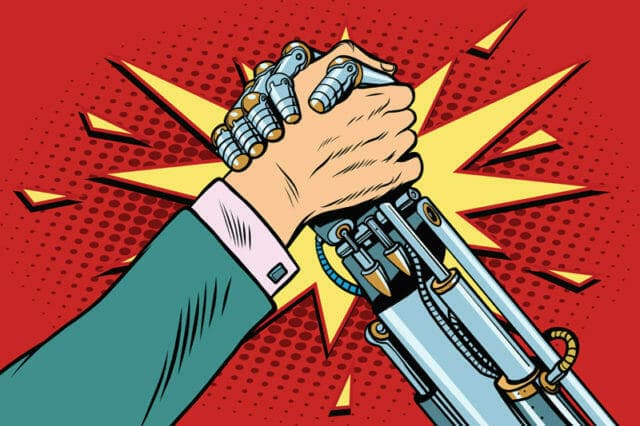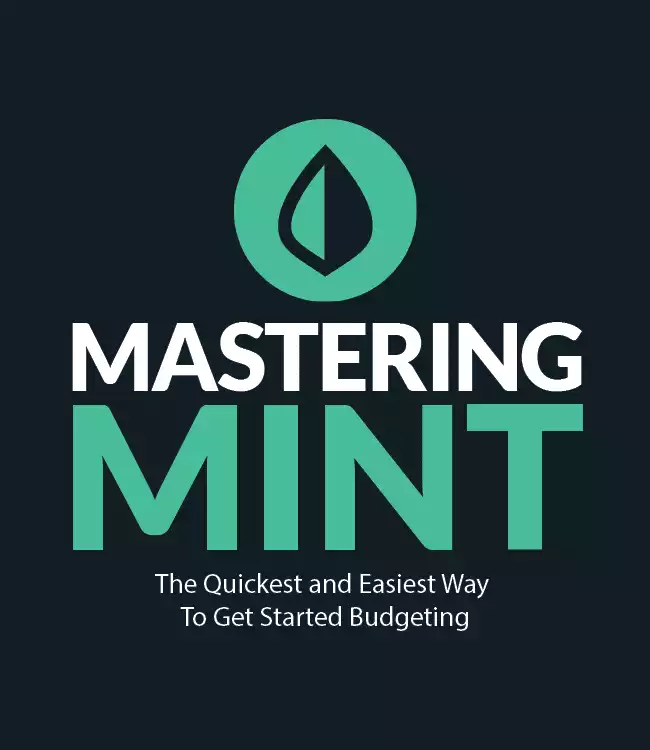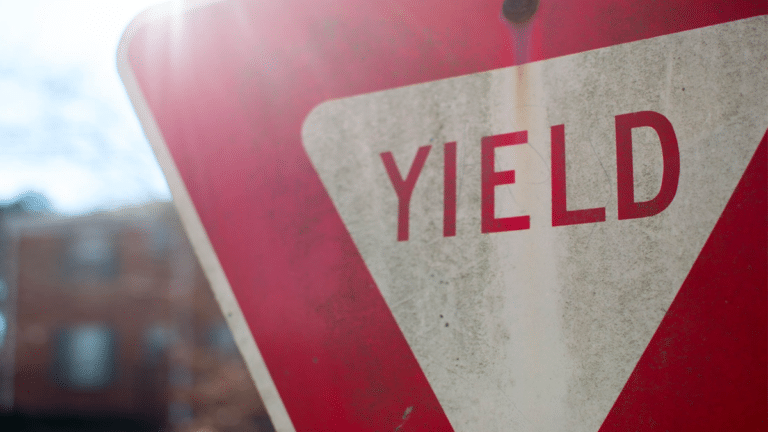Last week we spoke about the future of work when automation wipes out 47% of American jobs. That episode begs the questions, will universal basic income be part of our future? Will free money be the answer to our problem?
When the robots steal our jobs, we will need money coming in from somewhere to house and feed ourselves. One way to do that is through universal basic income. Today we look at the pros and cons of universal basic income and see how free money will affect our future.
Editor's Note
What is Universal Basic Income?
Universal basic income, also referred to as guaranteed income or minimum income, is the government’s promise to pay every citizen a wage.
The argument goes:
The government would pay every adult citizen a salary, regardless of wealth, employment income or if they worked at all. Doing so, the theory goes, might solve a host of endemic economic problems, from poverty to chronic joblessness, that is only likely to worsen in the coming century.
The free money is not intended to make people rich, merely to meet basic needs and bring all citizens above the poverty line. The amount usually quoted to do that in the United States is $1,000 per month.
UBI is nothing new, not even in the US. Alaska has had a UBI program for decades (known as the Permanent Fund). Alaskan residents receive about $2,000 per year, and the money comes from oil revenue.
Why Universal Basic Income Matters
We all know what it means to vote with your dollars. But what does it have to do with UBI? The vote is not an accurate one if not everyone gets a vote. Those without dollars don’t get a vote, but that doesn’t mean they don’t have an opinion on the election.
Universal basic income would ensure that everyone had at least a dollar so everyone would get a vote.
Current presidential contender and New York native, Andrew Yang, is running on the Democratic ticket advocating for basic income as a solution to combat joblessness and income inequality in the United States. His Freedom Dividend aims to give a monthly $1,000 cash payment to every adult aged 18 and over.
Proponents of Universal Basic Income
UBI has a storied history with many renowned entrepreneurs, politicians, and activists in favor of it.
Martin Luther King Jr, spoke of basic income during the Civil Rights movement as an approach to ending poverty.
Richard Nixon sought to reform the welfare system with a negative income tax that both financially supported low-income earners while incentivizing them to work.
Economist Milton Friedman saw the American welfare state as a flawed system and proposed replacing miscellaneous welfare programs with a “single comprehensive program of income supplements in cash.”
Elon Musk said because of automation and robots doing more of the work, a basic income will be crucial to a shrinking labor market.
Silicon Valley billionaire Mark Zuckerberg sees it as a way to encourage entrepreneurship “so that everyone has a cushion to try new ideas.”
This is our guide to budgeting simply and effectively. We walk you through exactly how to use Mint, what your budget should be, and how to monitor your spending automatically.
Income Inequality and Automation

Until pretty recently most of us had never heard the term universal basic income, and now it’s everywhere. Why is it suddenly so ubiquitous? As we mentioned above, it’s partly due to the coming automation. But it’s not the only reason.
Income inequality is another. Income inequality is defined as “the extent to which income is unevenly distributed among a population.” In the US, the top 0.01% earn $27 million a year. The bottom 90% earn $31,000. CEO compensation between 1978-2013 and adjusted for inflation rose 937% compared to the average worker’s increase of a lousy 10.2% for the same period.
This model is not sustainable. People might not take to the streets because they’re underpaid, but the same won’t be said when they have no job at all. So much like universal health care, universal basic income is something that is very much on the table.
Low-Income Workers Stimulate the Economy
Hoarding is why trickle-down economics doesn’t work. It didn’t work when Reagan touted it, and it’s doesn’t work now when Trump bloviates about it. The ones at the top don’t put their money back into the economy by creating jobs or spending it. They hoard it. Do you want to stimulate the economy? Then give money to low-income workers.
All those dollars low-wage workers spend create an economic ripple effect. Every extra dollar going into the pockets of low-wage workers, standard economic multiplier models tell us, adds about $1.21 to the national economy. Every extra dollar going into the pockets of a high-income American, by contrast, only adds about 39 cents to the GDP.
UBI Pros
There is a long list of pros for implementing UBI, but these are among the most impactful.
An Assistance Program with No Strings Attached
Just who is the federal government to tell you what you can do with your money? Many entitlement programs come with strings attached, things like work requirements or limits on what this free money from specific programs (like WIC) can be used to purchase.
UBI would remove this form of government paternalism. Each recipient can do whatever they like with the money.
UBI Doesn’t Taper Off If Your Earnings Increase
A large part of the reason people can’t climb out of poverty is because of the welfare trap. Benefits are reduced or utterly eliminated if the recipient starts making over a certain amount of income from a job.
The earned income tax credit works in a similar way by assisting low to moderate-income workers. However, it tapers off at a specific dollar amount as your earnings increase until you no longer receive the credit.
There is no incentive to advance in a job or look for a better job if it means you end up with less money. Those benefits are a steady source of help, but anyone can lose their job or have their hours cut.
UBI doesn’t change if you start to earn more money. That steady source of income is always there and not taken away as you advance, so people have more incentive to try to improve.
Most people are not inherently lazy, but most of us will do the intrinsically safe thing, and those benefits are the more reliable option than a job you could lose.
UBI Reduces Stigma
Were you the kid that got free lunch in school? In some cases that meant a separate line or a special ticket that marked you as one of the “poors.” It’s humiliating for kids, and the stigma of public assistance doesn’t go away as an adult.
Some adults who genuinely need help, refuse to apply for it because they feel so ashamed. Believe me; the Waltons don’t feel ashamed of all the corporate welfare they rake in so if you need help, take it.
If everyone is getting the same thing as they would with UBI, there is nothing to be ashamed about.
Workers Self-Reliance Increases
All states in the US are at-will work states. There are some regulations but for the most part, in an at-will work state, you can be fired for any reason (excepting federal rules regarding race, religion, etc.) with no notice.
Unions used to offer workers some protection from unjust firings, but not many Americans are part of a Union any longer. Union membership was 10.7% in 2016. In 1983, the first year with comparable data available, that number was 20.1%.
Workers have no bargaining power. They need the job they have no matter how bad the pay, or poor the conditions. UBI would give employees back some control. Employers would not be able to keep employees in jobs that offer substandard wages and conditions if employees were less reliant on a traditional paycheck.
There’s More Than One Steve Jobs Among Us
The difference between people like him and people like some of us is not a technical genius, or business acumen, or a preternatural ability to read zeitgeist. It’s that they were less risk-averse than most of us.
What innovations would we see if people knew there was a safety net to catch them if they decided to take a chance? If failure didn’t mean starving? UBI would create more entrepreneurs and more small businesses.
More People Could Complete Their Education
Just over half of people who start college graduate. More people will complete their educations when there is less pressure to earn a living, and a college education is what pushes the working class into the middle class. And a robust middle class is required for a healthy economy and a healthy country.
Cons
There are plenty of arguments against UBI.
Encourages Bad Behavior
People will spend the money on things they shouldn’t, like drugs and alcohol. However, this study conducted by the World Bank said cash transfer programs like UBI do not encourage this type of behavior and that the argument is unfounded.
Economic Migration
Immigration is already a hugely contentious issue. If we adopted UBI, some people worry that economic migrants would come flooding into the country. Others fear that it would make becoming a naturalized citizen nearly impossible due to political pressure.
Decrease In Jobs Keeping Society Functioning
If everyone could do whatever they wanted without worrying about earning an income, would our basic needs be met? UBI would create no shortage of painters and poets but would we have enough plumbers and carpenters?
Targeted Needs
All current social programs would be replaced by UBI and provide cash payments. It doesn’t provide for “targeted needs” like health and child care, addiction programs, and job training.
There would have to be additional programs because UBI can’t meet everyone’s needs so now we have the expense of UBI and the expense of other programs.
We Wouldn’t Know What to Do with Ourselves
Have you ever heard of a person who retired and promptly dropped dead? It happens, ask Andy Rooney. Humans need to work. Work provides all sorts of benefits apart from a paycheck. It gives us social interaction, a routine, a sense of purpose.
Those benefits are essential to mental health. If we didn’t have to go to work, would we become a country of depressed hermits?
The Reciprocity Problem
I’m a liberal, but even people like me feel some resentment when I hear a story about someone mooching off the system. Why should they sit around getting a hand out when I work every day?
Well, with UBI, I would be getting a hand out too. So I can’t use that argument. And the handout is the minimum. Most humans want more than the minimum. Not everyone has the ambition to become a doctor or lawyer, but most of us have enough ambition to go out and do something that gives us more than the minimum.
The other factor to consider is the “so what” factor. I don’t like people gaming the system, but those doing it are a very, very small fraction of the people in the system. So which do you prefer, that no one gets SNAP because X% of claimants are scamming or no one gets it and the ones who need it starve because of that X% of bad apples?
I don’t want anyone to starve. I know there are people out there who would delight in seeing people they think are undeserving starve, but there are more people like me than people like them.
If UBI can lift millions out of poverty and allow them to pursue a better life, what real difference does it make if a small percentage of the country doesn’t do anything to earn more money? The net gain for those millions and all of society is worth overlooking the few moochers.
Who Will Pay for UBI?
Here’s the rub. Where are we going to get this free money?
The Pentagon
We could cut our military spending by a billionth of a percent, and that would probably take care of it. If the government is going to spend money to protect us, I would prefer they spend it on things like making sure bridges we drive on don’t collapse, or that none of us die because we can’t afford to go to the doctor.
Those are the things you should fear, and the government should be spending money to fix.
Prisons
America has more people locked up than any other country on earth. Each of us pays $260 on corrections per year up from just $77 per person in 1980. That’s $80 billion annually. But the rate of violent and property crimes has fallen by 45% over the past twenty years.
The best anti-poverty program is a world-class education.
Tweet ThisLess crime but more spending. Why? Things like mandatory sentences and three-strikes laws. No one believes that the prison gates should be thrown open but locking up non-violent criminals for years or even decades is not money well spent.
Scrap the Current System
UBI would replace all or most other entitlement programs and all the money it takes to run and implement them. UBI is cheaper than the current system.
The UBI is to be financed by getting rid of Social Security, Medicare, Medicaid, food stamps, Supplemental Security Income, housing subsidies, welfare for single women and every other kind of welfare and social-services program, as well as agricultural subsidies and corporate welfare.
Tax the Rich
US companies and the 1% all over the world avoid paying $70 billion a year in taxes because they stash money in offshore tax havens like Bermuda and Seychelles.
Apple has $128 billion in Jersey (the island, not the state) and the biggest benefit scrounger on earth; Queen Elizabeth has 10 million pounds stashed in the Cayman Islands.
How to Move into UBI?
As I wrote, the current system is not sustainable. If we don’t move towards UBI, what are the alternatives?
Improve Existing Programs
We have spent $24 trillion on social programs since LBJ launched the war on poverty more than 50 years ago but much like the war on drugs, the problems persist. There are more than 80 means-tested welfare programs scattered across several government agencies so you can imagine the inefficiencies.
Improving and consolidating the existing system could alleviate the problems UBI is meant to solve.
Basic Income Experiments
Some have decided to take a crack at UBI with mixed results.
Finland ran a two-year trial in 2017 giving its citizens $638 a month to 2,000 unemployed people which had no immediate effect on employment. However, they have reported improved quality of life. Results have been inconclusive.
Stockton, CA is at the tail-end of a two-year pilot program (started in 2018) giving $500 a month to low-income families.
Ontario, Canada ran a 2017 UBI pilot program doling out monthly payments to over 4,000 people. The program shut down citing costs and changes in government. Despite the program’s termination, residents reported decreased anxiety and increased self-reliance.
Give Directly, a nonprofit backed by Google, is running a 12-year experiment and has sent cash transfers to 197 villages in Kenya.
Y-Combinator is testing a cash transfer program in which 1,000 people will get $1,000 a month for three years.
It’s the Only Way to Be
The grotesque levels of income inequality in the world coupled with massive unemployment are going to create a flashpoint. I don’t think it will start here. People like to complain about how apathetic Americans are when it comes to taking to the streets to foster change, but I don’t think that’s true.
The Civil Rights movement and more recent things like the Million Man and the Women’s March prove otherwise. It’s just that we are so big and spread out. Marseille, all the way in the southern part of France is only about 400 miles from the capital, Paris. An easy drive and an easier train ride.
It would take much longer to get from LA to DC. So when Americans protest, we can’t all march on the capital. Tens of millions of us descending on DC would get someone’s attention, but it’s just not realistic. We can’t take a week’s vacation to make the trip.
But if you have no job, you have no job to lose. And then the list of things you do have to lose becomes ever smaller. And when you have nothing left to lose… So maybe that’s what it will take for things to descend into anarchy.
Much like the protests in Tunisia are what sparked off the broader Arab Spring, things will probably kick off in Europe first and then spread.
What’s the Future Hold?
Automation, UBI, Artificial Intelligence (AI), it’s all coming. It’s going to change life as we know it and faster than we can imagine. One day you will have a job and the next, a robot will be doing it. We do have time though, not much, but time to put ourselves in the best position to weather this.
Things like unemployment benefits and earned income tax credits are steps in the right direction. Everyone needs a little help. How will UBI fit into the equation?
Get your financial life in order now, follow the roadmap to financial independence, so you don’t become a 21st Century Luddite smashing up looms.
Show Notes
The Crisp: A German-style Pilsener.
Tool Box: All the best stuff to manage your money.



